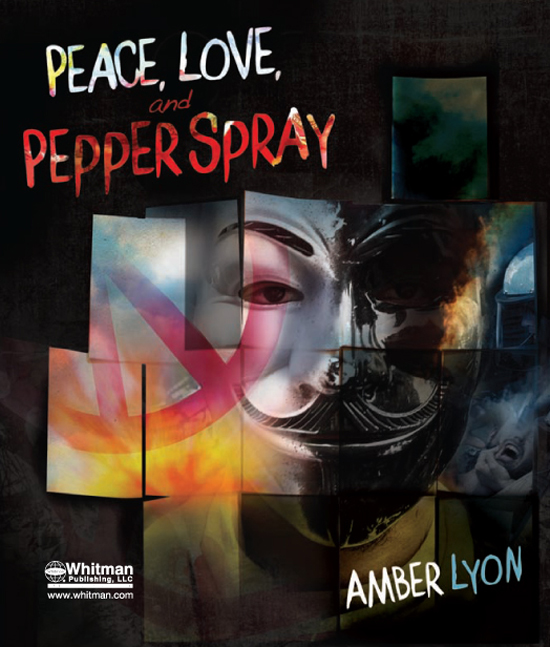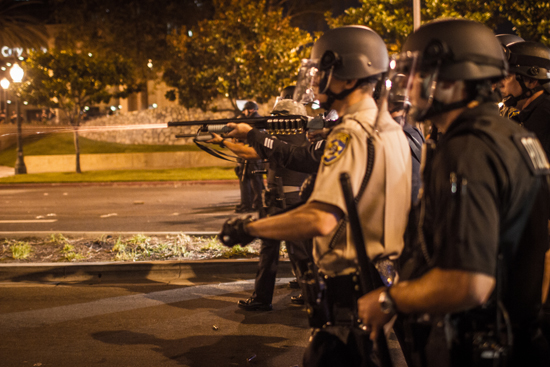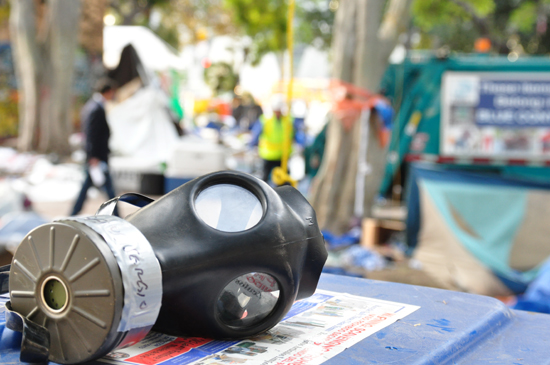by Nicole Powers
The following interview was conducted in November 2012 for the book Hacking Politics: How Geeks, Progressives, The Tea Party, Gamers, Anarchists and Suits Teamed up to Defeat SOPA and Save the Internet. Compiled by Demand Progress, Hacking Politics is a firsthand account of how a ragtag band of activists and technologists overcame a $90 million lobbying machine to defeat the most serious threat to Internet freedom in memory. It features contributions from Aaron Swartz, Lawrence Lessig, Cory Doctorow, Ron Paul, Kim Dotcom, and many more, and is available now via Tor Books.
Anyone who’s ever posted a link online without thoroughly investigating its providence should be concerned about the fate of a British student who is facing extradition and a ten year prison sentence in America – despite the fact that the crimes US prosecutors allege he is guilty of were not committed on US soil or servers and are not considered by experts to be against the law in the UK.
Richard O’Dwyer, a 24-year old from Chesterfield, England, founded TVShack.net in December 2007 while studying for a degree in computer science at Sheffield Hallam University. The site, which O’Dwyer started as a hobby, was essentially a boutique, entertainment-orientated search engine, which provided users with links to streaming movies, TV shows, documentaries, anime and music. TVShack.net hosted no content on its servers, it merely pointed users in the direction of third party sites that did.
Without warning, on June 30, 2010, the TVShack.net domain was seized by US Immigration and Customs Enforcement [ICE] and a boilerplate copyright notice was posted on the site. Since Richard wasn’t operating from within the US, he wasn’t alarmed by this setback. Unperturbed, he switched over to TVShack.cc – a Top Level Domain based in the Cocos Islands (an Australian territory) – and soon had the website back up and running.
Richard continued to run TVShack.cc unimpeded, until one day when he got a rather unexpected knock at the door. The very long arm of the law, in the form of two American ICE officers, had come a calling at his university accommodation in the North of England, accompanied by an escort of Her Majesty’s boys in blue. Richard was arrested, but the investigation in the UK was subsequently dropped.
However, the Southern District Court in New York is attempting to prosecute Richard on one count of conspiracy to commit copyright infringement and one count of criminal infringement of copyright. The application of existing intellectual property law in this way stretches it far beyond the boundaries – and borders – that lawmakers could possibly have originally envisioned. Furthermore, the US Government’s determination to prosecute this test case – at the MPAA’s behest – is chilling when you consider how it may affect the very fabric of the web.
Even though Richard has committed no crimes that the British legal system is remotely interested in prosecuting, on January 13, 2012, a UK magistrate ruled that Richard could be extradited to America to face charges there. The judge was acting under the auspices of the highly contentious Extradition Act of 2003, a lopsided piece of legislation that was drafted in the wake of 9/11 and was sold to the public as an anti-terrorism measure.
Richard, and his mother Julia, a National Health Service nurse, are currently in the process of appealing this autocratic extradition ruling. As the legal process sluggishly moves towards a seemingly inevitable conclusion – since very few extradition requests from the US are declined – Richard is attempting to keep his head focused on his studies and his e-books. I therefore spoke with Julia, who has been spearheading the fight to keep Richard in the UK, about her son’s situation and the implications it could have for all webmasters and denizens of the net.
Nicole Powers: Were you aware at the time that Richard was doing this website?
Julia O’Dwyer: Well I knew he had a website, but he was at university. He wasn’t actually living at home all the time, so I wouldn’t be seeing him working on it that often because he wasn’t here. He would come home every few weeks or at the end of the university term. I knew he’d got a website. I didn’t really know the details of it…He did the website as a hobby. That’s all it was. One of his mates made a suggestion to him and he said, “Alright, I’ll do that.” So he did it.
NP: Had your son ever been in trouble before?
JD: No, no, never.
NP: When did you first realize something was wrong?
JD: I think it was in the summer of 2010. He was actually at home because it was the college holidays. I remember him saying, “Somebody’s taken down my website.” He was here in the room with me and he was like muttering away [saying], “Well, I’ll fix that.” America had put on this big red banner that is still on the website onto his original domain name, so he just fixed it and got it up and running on a new domain name. I can remember him saying, “America has nothing to do with me.” That was the end of it. He had it fixed and up and running again within a day or two.
NP: I’ve seen the banner. It just looks like one of those standard notices that you see and ignore at the start of a DVD. Aside from that, at the time, did anyone from the US government contact him?
JD: Nobody had contacted him at all. He’d said he’d had a couple of take down requests, which were not correctly formatted, so that meant he couldn’t find the links that they were trying to refer to. He had a take down request to remove a link from a British film company, and he complied with that request. But apart from those, there was no correspondence or communication from anybody in America to Richard about his website. All his mail would come to this address. When he’s at university, because he changes accommodation every year on the course, he always gives his home address as his mailing address. I know that nothing came here because I always open the mail in case there’s anything urgent…So I can safely say that no correspondence came to this address, and they did have this address because his domain was registered in his name with his home address. After they took down his first domain name in July we never heard anything from anybody until the police arrived in November wanting to question him about his website…That very same day he closed down the domain name and any of his email addresses that were associated with that website
NP: So before the police knocked on his door, he had no way of really knowing what he’d done wrong.
JD: I think he just thought, well I’m not in America; I’m not subject to the laws of America. That’s how he would think. That’s why he said, “They’re nothing to do with me, so I’ll fix it.” Which he did. Then they didn’t like that so they came after him.
NP: Where was he when the police arrived?
JD: He was in Sheffield at his student accommodation. It was early in the morning. He was just getting ready to go to classes and some police knocked on his door…There was police from the City of London, and two American agents. We assume it was ICE agents. They weren’t present when Richard was being questioned. I don’t know why they were there, but they didn’t come in on any of the questioning.
NP: So they took him down to the police station.
JD: In Sheffield, yes.
NP: I was watching an interview that Richard did with The Guardian in which he talked about how he asked if he should have a solicitor present and they brushed him off by saying it’d take too long.
JD: Yeah…They said to him it’s going to take a few hours to get one here. Because they said that, and because he had no previous dealings with the police, he didn’t ask for a solicitor. And he wanted to get to his classes. He didn’t want to be late.
NP: What’s your understanding of what was said during the questioning?
JD: Well I have the transcript of the police interview…It wasn’t a long interview. It was about 40 minutes…[They said] they were arresting him under copyright, designs and patents offenses. They said the website is streaming films and TV, and that’s infringing copyright legislation, so therefore the money you’re making is effectively money laundering; it’s the proceeds of your criminal activity.That’s why you’re being arrested. They asked him about the website, when he made it. They asked him did anybody else help him with the website. They asked him about how he managed the website, and if he generated an income from it. They asked him how it technically worked. It was just links on the website, there was no copyrighted content…They asked him how people would go on it, select a link, would be directed to Youtube or some other video sites. They asked him about how it gained popularity…They asked him more technical stuff about the website, where the servers were. No servers were in America. He told them it was all his own work, nobody helped him. He did it as a hobby. That’s about it really…He was actually in tears for most of the interview. I didn’t find that out until I got this transcript. I was a bit annoyed about that.
NP: How old was he at this time?
JD: He was questioned in 2010, so he was 22…The police were also here at my house at the same time questioning me. They probably had this address down for Richard as well you see.
NP: So simultaneously to the police knocking on Richard’s door at his digs they’re knocking on your door?
JD: Yes…Same time, early in the morning. I wasn’t going to work that day because we had the joiners here. They were taking out the staircase and putting new stairs in. They came and I was really worried and thought Richard had been in an accident. That’s the first thing I thought when I saw these police. It was about half 6 or 7 in the morning. It was dark. Anyway, they said they wanted to speak to me about a website that Richard had.
NP: Under what circumstances did Richard finally get released?
JD: When they finished questioning me I just sent him a text telling him to come home or he texted me and said he was coming home, and so he did. Nobody mentioned extradition at this point. That wasn’t even something that entered our minds. So I just said, “Don’t worry about it, Richard. We’ll get a solicitor, we’ll sort it all out.” He was told that he was on bail and that he would have to go back to the City of London Police Station, which is where those police came from, six months later, which he did. We both went there.
NP: What happened when you went down to London six months later in May of 2011?
JD: It was just to go to the police station to answer to the bail. Richard by now had got a solicitor who also knew nothing about extradition. He got us somebody to meet Richard at the police station…He went in with Richard, and then quickly came out and said the criminal investigation in the UK had been dropped. I felt an immediate sigh of relief, but then in the next sentence he said, but we’ve got this extradition warrant instead, and we have to go straight to the courts. That happened quickly. Richard was put straight into a police car and taken to the court. I had to go and find my way to the court, and that’s the first we heard about the mention of extradition.
NP: So with no warning, all of a sudden you’re in a UK court fighting extradition.
JD: Yes. Richard was put straight into a cell at the police station. He was locked up. I had to make my way there and the lawyer said that a barrister would meet me there…I had to be there for 2 and I don’t think the barrister came ‘til about 4. Richard was locked up all this time so I couldn’t have any contact with him.
NP: I’m guessing your lawyer would have had to scrabble around to find a barrister because he didn’t even know he was going to need one.
JD: Exactly, yes. While Richard was locked up and I was waiting to go to into this court, loads of people were there waiting for the same purpose, not to go America but to Europe…I went into the court to wait Richard’s turn. They just keep coming in, one after the other…they were all just being processed through…And I was just thinking, oh my God, this is going to happen to Richard next. We didn’t get any information. Nobody gave us a leaflet about what happens if you’re given an extradition warrant. I only knew what I could see going on there. The fact was everybody was getting their extradition requests rubber-stamped.
When Richard came into the court there was a prosecutor there for America and this barrister that we had. Of course, she knew nothing either. Nobody knew about the case because we didn’t know there was a case. The prosecutors wanted Richard to be kept in prison, so they were arguing for that. It was really terrifying because they were so nasty. Because Richard had got exams the following week, and we’d told all this to the barrister woman. She managed to get bail for Richard, but he had to go in prison overnight because they wanted his passport. We didn’t go to London with a passport, it was here at home, and they wanted some cash as well. Then it was 5 o’clock, and the court was closing. We couldn’t physically get the money and get the passport by 5 o’ clock when we didn’t even go into the court until 4, so Richard had to go to Wandsworth Prison. Luckily my sister lives in London so I was able to give her a call. I went to her house and then the next day we got the money and I phoned home and got my partner to get the passport. None of it was straightforward.
NP: I can imagine; Chesterfield’s 150 miles away from London.
JD: You have to take the passport to a local police station, and they have to contact the prison. But the trouble is I was trying to do this at 5 o’ clock after Richard had gone off to Wandsworth Prison. They make them sit in a van for hours outside, they take hours to process them into the prison, and until they’re actually processed into the prison and moved onto their computer system, they wouldn’t accept the passport. My partner…he was in Worksop [a town 16 miles from Chesterfield] at the time, and the police were like, “We don’t know how to do this. We can’t take your passport.” It was just hopeless, the whole thing. But by the next day, we got that sorted, and he was able to come out in the afternoon.
The other thing was they didn’t know what bail conditions to impose on him. The judge was like, “We’ve got the money, we’ve got the passport, what else can we do to him?” The barrister said we could say that he mustn’t access the internet, but then the judge was saying he’s got exams the next week, he’s at university, so we can’t do that, can we? And how could we police that anyway, he could just go in an internet café. So Richard had to tap on the glass, because he was behind this glass wall in the court, to get somebody to come over so that he could make suggestions to them about his bail. He just said, “You could tell me not to access the TV Shack website” – which he’d already taken down anyway – and “You could tell me not to buy any new domain names.” So he chose his own bail restrictions because they didn’t know what to do. It was funny. Well it would have been funny if it hadn’t been so frightening.
NP: So now he’s back studying at university and you’re fighting extradition, which is just a ridiculous thing because he’s not committed any crime that anyone’s interested in prosecuting him for in the UK, and it’s arguable that he’s committed no crime at all.
JD: Yes, that’s right. He never went to America. America is claiming jurisdiction over somebody who has never set foot in their country. They don’t allow it to happen to their own citizens. We can’t do it to them. I have a freedom of information request which shows that not one American has ever been extradited to the UK for something that they’d done in America. And the UK has never asked for an extradition of an American for something that they’ve done in America. So it’s mad.
NP: What’s the process to fight the extradition? And where are you at with it right now?
JD: Well we’ve just received a date for the appeal in December…The main argument is that Richard’s website operated in the same way as the TV Links website…and the TV Links case was thrown out of court. It was dismissed…It was thrown out because they said that linking to any content is not a crime basically.
NP: As I understand it, they were claiming the difference with Richard’s case was that he was curating content?
JD: No, they didn’t say that actually. In fact it was quite a cock up at the court…We had a few hearings where we presented the arguments through October and November of 2011…In order to be extradited the alleged crime must be a crime in both countries. We were trying to prove that it is not a crime in the UK. If we had won that argument, then Richard couldn’t be extradited. At that court hearing the judge was saying yes, you’ve got a good, strong argument. And so was the prosecutor. We had another hearing booked, because there’s other arguments that you put forward like human rights…
The next court appearance, the night before we were going to London we got a late submission from the other side. When you get a document through, you have to read it and you’re meant to rebut it, provide a response. But it came to us at something like 7 o’ clock at night; we were going to get on a train at 5 in the morning. Normally we would look at these documents for a week or so and with the solicitor write a response. I was really cross about this…I just sent a bit of a ranty email saying, “Why are we getting this crap? It’s full of inaccuracies. The prosecution clearly don’t have the technical knowledge to understand what it’s all about.”
The next morning, we got to London, I was still mad about this, because we had to do a very quick response to it. The barrister came and he said, “Oh, I’ve sent your email to the prosecution barrister, and he’s decided not to submit that document.” It was rubbish anyway. We weren’t afraid for him to submit it, just annoyed that it was sent so late. But he’d decided not to [submit it]. Because of that, the barrister said let’s leave it now as we left it last time, which is when the judge said we’ve got a good strong argument. We still had some other material to send in, but he said let’s leave it. I didn’t want to leave it. I wanted to carry on because I wanted it done good and proper, so that they wouldn’t be able to come back. But because he felt that the judge and the prosecutor were agreeing that we had a good argument, he thought we would win it, so we didn’t then submit this extra stuff…But then it all changed. Six weeks later the judge changed his mind. So we have to appeal against that decision, and this is the date that we’re waiting for, the appeal.
NP: I presume this is all costing an incredible amount of time and money…
JD: Well Richard has legal aid, because he’s a student, so we don’t have to pay legal costs. We’ve had to pay for a couple of things, like we had a video made to explain to the judge how linking works. Because you get judges who are not technically literate…There’s been the costs associated with traveling up and down to London quite a lot. That’s expensive.
NP: And I understand that you had to temporarily give up work.
JD: Yes, I was off work for about six months as soon as this started happening.
NP: This is so chilling, because what Richard’s done, putting links on a website, if America is successful in this case, the way it could be extrapolated will mean that virtually anyone that’s ever put a website up could be extradited and/or subject to similar prosecution.
JD: I’ve checked the American Department of Justice website, I’ve checked ICE’s website, I’ve checked the British Home Office website, they all have links on, and what do they say? We are not responsible for any content on any third party links…which is what Richard said on his website. Because when you go to a link on somebody’s website, you leave that website and go to elsewhere – don’t you? You don’t stay on that website. The content that you link to isn’t on your website. It’s like if you have an email that somebody sends you with a link on, if you click on the link, you get sent somewhere else. It’s not lodging on your email is it? So yes, it’s worrying, isn’t it, certainly?
NP: Do you have a sense that what you’re fighting isn’t just for Richard? It’s for thousands of people just like Richard, and also for sanity to reign on the internet.
JD: I’ve had to educate myself more about the internet and about extradition law as well. In the course of that I found out all about SOPA and PIPA and all that. So, yes, it is a very important issue isn’t it? And I think you’re right by saying if this is allowed to happen, then there are implications for many others worldwide, and for the internet. So yeah, it’s very important, but obviously I do have to put Richard first. He’s only a little fish really. I’m sure they’ve got bigger fish to fry than a little lad from Derbyshire.
NP: The US Government has virtually unlimited resources, so to drag a 22-year student through the courts like this, it feels like they’re choosing a test case that they thought would be easy pickings.
JD: Well this happened when they were doing this big clamp down called “Operation in our Sites” in America. I only know this now, afterwards…They seized several domain names on that same day, the 29th of November, 2010. After this had all happened, after the police came here, we received through the post documents about the domain name seizure. It wasn’t just a document about Richard’s website, it was a big document where all these other websites were listed as well. It was like a group thing, and it showed the addresses of the owners of all the websites. Richard’s was the only one that had his name and address at the side of it. All of the others had post office box numbers. So in that group, he was easy because they had his name and address, whereas the others, they didn’t. Because Richard did it as a hobby, he wasn’t thinking he needed to conceal anything….If it was criminal, he wouldn’t put his name and address on it would he?
NP: It’s also chilling that the website was seized first and questions were asked later. It was seized and shut down without any due process. They wouldn’t do that to a terrestrial business.
JD: Well he wasn’t running it as a business. It was a hobby. He did make money out of it, but he didn’t set out to make money from it. The ad companies approached him. He didn’t go looking to make money. When the advertising companies, who by the way were American, approached him, he just thought, “Yeah, that will be all right. It will pay for my servers and stuff.” He didn’t think it was going to grow into this massively popular website – that just happened by the fact of how the Internet works and how things spread. He never set out to make money from it at all. So yes, they did, they seized the domain with no due process.
NP: Basically it would be the equivalent of seizing a shop and all its contents and closing it down without so much as a court hearing, or even a formal mailed warning.
JD: No warning, no take down notice. I mean when these documents came…eventually, we got one saying if you want to show any interest in this domain name you’ll have to come over here. He just signed to say he wasn’t interested in it because we obviously didn’t want to go over there. But yes, no warnings, no takedown, just that banner slapped on his domain…No correspondence, no communication about takedowns or anything.
NP: Again, this is worrying for anyone who run a website anywhere in the world. If you apply the precedent America is attempting to set, other countries could start doing the same with the various other national domains, and any online business that falls in the sights of a government agency can just be taken down without any due process and people’s livelihoods ruined.
JD: Yes, I mean they have been doing that, haven’t they? I know they have. I’ve been watching. There have been lots of domain seizures and I’ve seen people having to go to court to get their domains back.
NP: How let down do you feel by the UK government? Because they don’t seem to be standing by their own citizen – which is unconscionable when you consider Richard hasn’t done any crime that any English court is remotely interested in prosecuting.
JD: Very let down. But I’m not the only one in that position. They’re just following the law that the previous government created. That’s what I’m doing as well, campaigning for that law to be changed…I thought extradition was for fugitives, people who had gone to America, committed a crime, and then ran away. That’s what a fugitive is. Not to go and get somebody who’s never set foot in America, which is what they’re doing. America can do that because the British side of the extradition law allows them to. They protect their own citizens in America; the UK does not. If an American was to be requested to be extradited to this country, they would have the right to a proper hearing and bit of a trial beforehand…The government, they’ve done nothing…There’s a few good MP’s who are fighting for reform, and they have been very good. But, historically, nobody wins this fight because the British government and the judiciary have got an obligation to stand by their extradition arrangements with America.
NP: Which are one-sided.
JD: Which are lopsided, yes.
NP: How can people help Richard?
JD: Well we’ve really had loads of support. Richard keeps out of the way mostly. I just wanted him to make sure that he continued his university courses and that that wasn’t going to be disrupted. He is doing that; he’s on his final year now.
There’s a few other people in the same position, and people that have been extradited and come back. We’re all working together lobbying the MP’s and getting plenty of stories into the media. A friend has launched a fighting fund recently, we’re just trying to get some money together…I have had lots of offers through Twitter from American lawyers who have said don’t worry, there’s loads of people here who would take this case for free. I’m not worried about that, but I am worried about other costs that might appear if we have to go there.
If you get extradited, you are put straight into a Federal prison in America, because they consider that you’re a flight risk – even though they take your passport. You are taken straight to a Federal prison and you have to fight then to get bail. And if you haven’t got an address in America, somewhere to live, then you’re not going to get bail. And if you don’t get bail, they leave you there to stew in until they are ready for a trial. Part of the rationale for doing that…Well firstly, they’re not ready for a trial, and secondly, they leave you in prison until you get so fed up and want to go home that you agree to a plea bargain. That’s how they resolve 97 percent of their cases in America. Also, if they did grant him bail, they’d want a load of money. So it’s going to be costly enough going to America, because if Richard goes to America I’m going to be going there…I’m just trying to anticipate and plan ahead really…If you fail your appeal, they don’t give you long before they take you. You can be gone within two weeks.
NP: I cannot imagine what you’ve been through and how much of a shock this must be.
JD: It was terrifying at the beginning…I’ve got a bit used to it now because I’ve spent the last six months of my life on the internet finding out more, finding out about copyright law in America, about copyright law in the UK, finding out about the extradition law.
NP: It’s just staggering, the fact that lobbying by bodies such as the RIAA and MPAA have turned something that would otherwise be a civil matter into a criminal one.
JD: Yes. They buy what they want, don’t they, from the government, from the law enforcement agencies by lobbying and stuff. It’s legalized bribery, isn’t it? And they have got people working for them that used to work for the Department of Justice and vice-versa. It’s all a bit incestuous that relationship between America’s law enforcement agencies and the MPAA. I’m not saying that people should commit copyright infringement, but that organization, those industries need to move with the times…Richard in one of his Guardian interviews said there’s nothing better than watching a movie at the cinema. He has always been a big cinemagoer. He still is. He was there yesterday. He goes there as often as he can. He loves movies. Yes, he’ll watch movies on his computer, but if he wants to see a movie proper, he’ll go out to cinema like everybody else does.
NP: People may think that this is never going to affect them, that this is some arcane copyright infringement case. But if they can go after Richard. they can go after anyone with a WordPress blog. No one is safe.
JD: That’s right. I mean, what is Richard to them? He’s just a little nobody in England. He’s nothing really. Why pick on him? He’s small fry…It’s not even clear that Richard has broken a law in America. It’s questionable whether he’s broken one in the UK. But you see you just get shipped over there and you have to fight that in a court.
NP: In effect, it’s guilty until proven innocent.
JD: That’s the way he’s being treated. Because extradition is another punishment, which is given to you before you’ve even had a chance to go into a court to defend yourself. Putting you and your family through this whole process, and then taking you to America and putting you in jail when you haven’t even been found guilty of anything…And just for something like this. He’s not a murderer or a rapist or terrorist or anything.
A month after this interview was conducted, in December 2012, Richard O’Dwyer’s ordeal came to an end when a settlement deal was reached. O’Dwyer traveled to the U.S. voluntarily to appear in a New York court and signed a deferred prosecution agreement. Under its terms, he agreed not to break any U.S. laws and was ordered to pay a £20,000 fine. As long as he complies with this agreement, the extradition request will be dropped.














